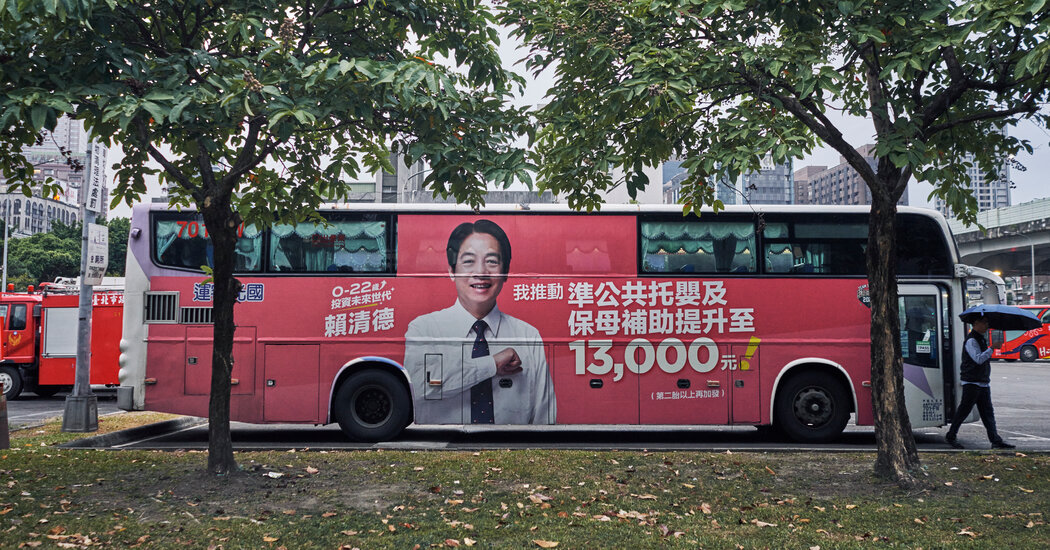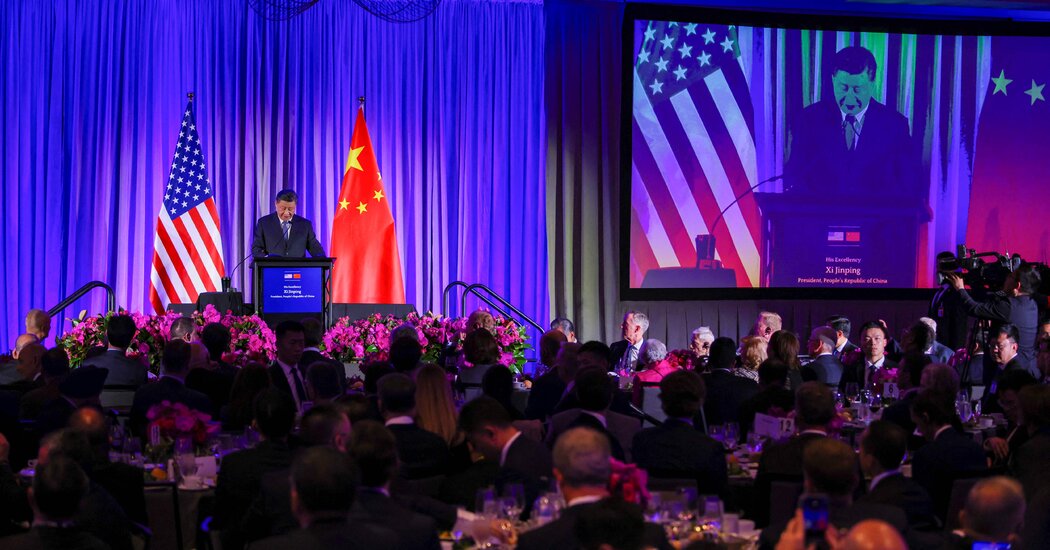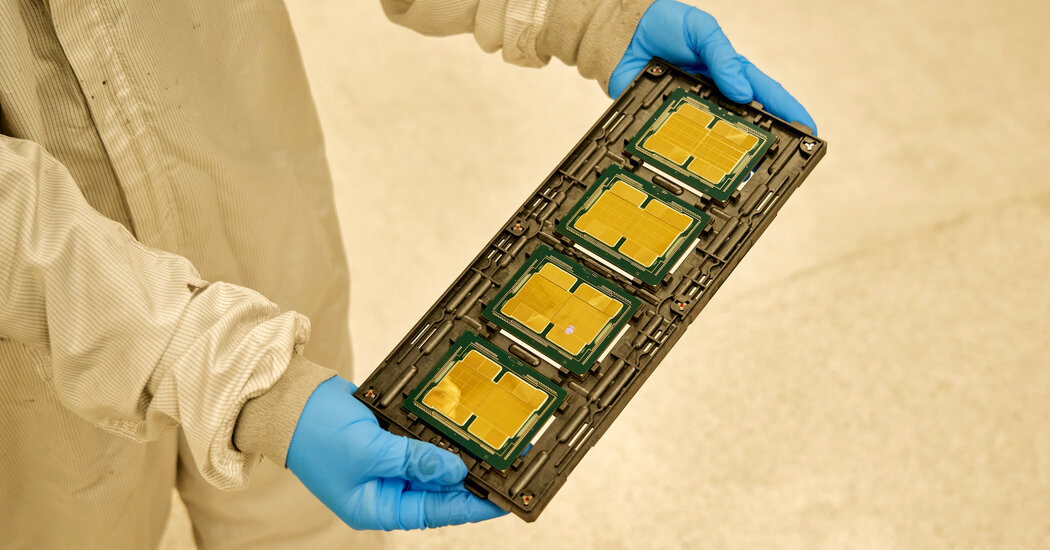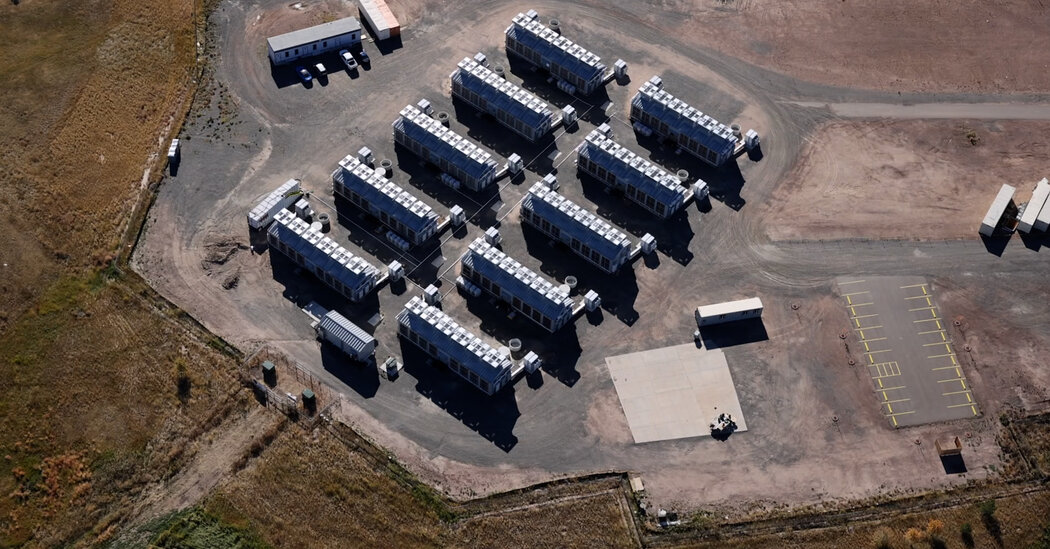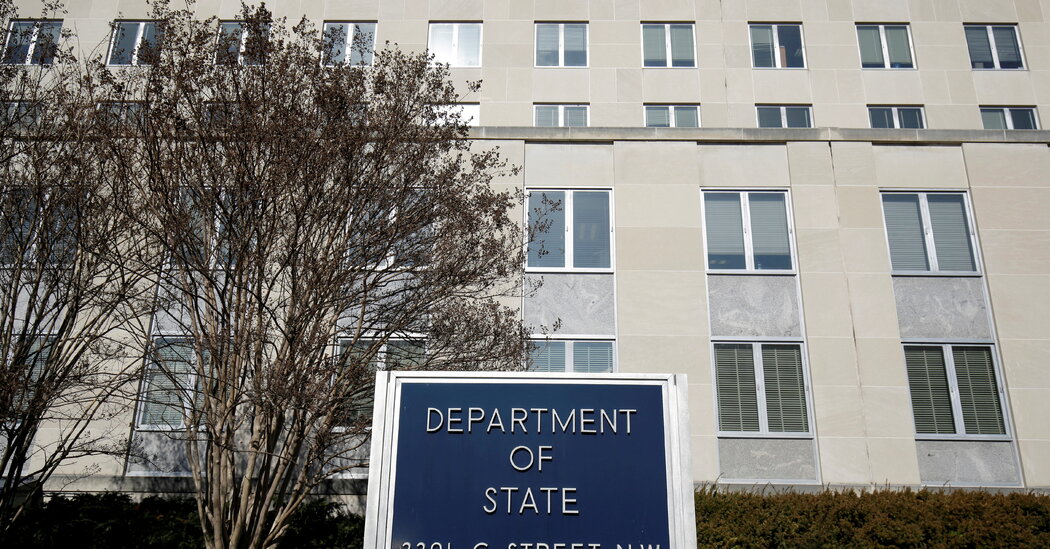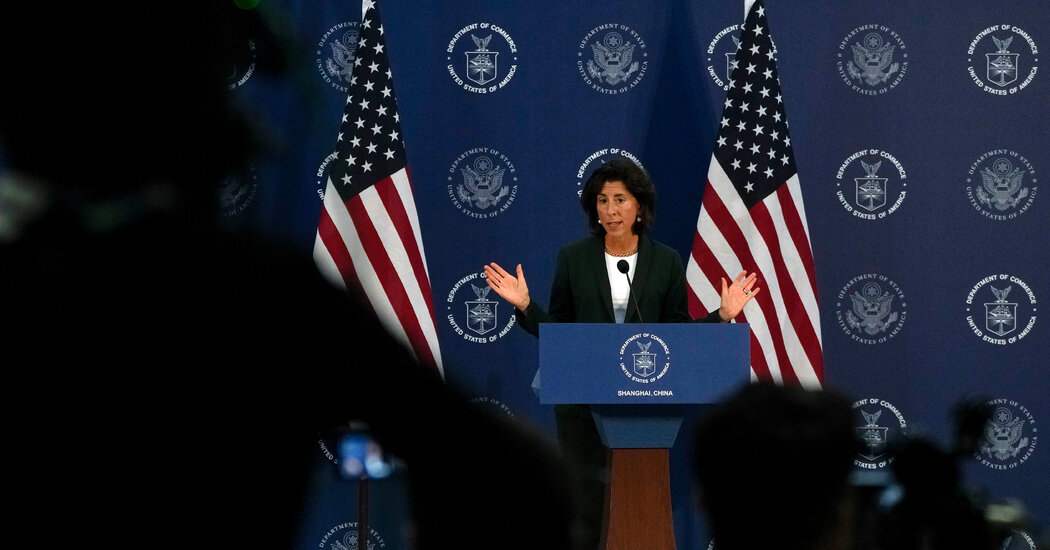Suspicious videos that began circulating in Taiwan this month seemed to show the country’s leader advertising cryptocurrency investments. President Tsai Ing-wen, who has repeatedly risked Beijing’s ire by asserting her island’s autonomy, appeared to claim in the clips that the government helped develop investment software for digital currencies, using a term that is common in China but rarely used in Taiwan. Her mouth appeared blurry and her voice unfamiliar, leading Taiwan’s Criminal Investigation Bureau to deem the video to be almost certainly a deepfake — an artificially generated spoof —…
Tag: Computers and the Internet
China’s Xi Jinping Draws Elon Musk, Tim Cook and Other U.S. CEOs to Gala in San Francisco
The streets outside the San Francisco hotel where the Chinese leader, Xi Jinping, addressed a crowd of American business executives Wednesday night were chaotic, echoing with police sirens and the chants of protesters. A woman had strapped herself to a pole 25 feet in the air in front of the hotel, yelling “Free Tibet!” as a cold rain fell. But inside the ballroom of the Hyatt Regency, the atmosphere was warm and friendly. More than 300 executives and officials listened attentively as Mr. Xi — the leader of a country…
U.S. Tightens China’s Access to A.I. Chips
The Biden administration on Tuesday announced additional limits on sales of advanced semiconductors by American firms, shoring up restrictions issued last October to limit China’s progress on supercomputing and artificial intelligence. The rules appear likely to halt most shipments of advanced semiconductors from the United States to Chinese data centers, which use them to produce models capable of artificial intelligence. More U.S. companies seeking to sell China advanced chips, or the machinery used to make them, will be required to notify the government of their plans, or obtain a special…
Across U.S., Chinese Bitcoin Mines Draw National Security Scrutiny
When a company with Chinese origins broke ground last year on a crypto-mining operation in Cheyenne, Wyo., a team at Microsoft that assesses national security threats sounded the alarm. Not only was the site next door to a Microsoft data center that supported the Pentagon — it was about a mile away from an Air Force base that controlled nuclear-armed intercontinental ballistic missiles. The location could allow the Chinese to “pursue full-spectrum intelligence collection operations,” the Microsoft team wrote in an August 2022 report to the Committee on Foreign Investment…
How the Big Chip Makers Are Pushing Back on Biden’s China Agenda
A year after the Biden administration took its first major step toward restricting the sale of semiconductors to China, it has begun drafting additional limits aimed at denying Beijing the technology critical to modern-day weapons. But in recent months, its progress has been slowed as American chip companies have pushed back with a blunt warning: Cutting sales to China would gut their businesses and derail the administration’s plan to build new semiconductor factories in the United States. Since July, Nvidia, Intel and Qualcomm, three of the world’s largest chip makers,…
China Is Suffering a Brain Drain. The U.S. Isn’t Exploiting It.
They went to the best universities in China and in the West. They lived middle-class lives in Beijing, Shanghai and Shenzhen and worked for technology companies at the center of China’s tech rivalry with the United States. Now they are living and working in North America, Europe, Japan, Australia — and just about any developed country. Chinese — from young people to entrepreneurs — are voting with their feet to escape political oppression, bleak economic prospects and often grueling work cultures. Increasingly, the exodus includes tech professionals and other well-educated…
Ukraine’s War of Drones Runs Into an Obstacle: China
Surrounded by rooms filled with stacks of cluster munitions and half-made thermobaric bombs, a soldier from Ukraine’s 92nd Mechanized Brigade recently worked on the final part of a deadly supply chain that stretches from China’s factories to a basement five miles from the front lines of the war with Russia. This is where Ukrainian soldiers turn hobbyist drones into combat weapons. At a cluttered desk, the soldier attached a modified battery to a quadcopter so it could fly farther. Pilots would later zip tie a homemade shell to the bottom…
China Uses ‘Deceptive’ Methods to Sow Disinformation, U.S. Says
The State Department accused China on Thursday of using “deceptive and coercive methods” to shape the global information environment, by acquiring stakes in foreign newspapers and television networks, using major social media platforms to promote its views and exerting pressure on international organizations and media outlets to silence critics of Beijing. The accusations, detailed in a report by the department’s Global Engagement Center, reflect worry in Washington that China’s information operations pose a growing security challenge to the United States and to democratic principles around the world by promoting “digital…
Gifts, Gadgets and Greece: Inside a Huawei Lobbying Campaign
In November 2020, executives at Huawei, the Chinese telecom-equipment maker, exchanged messages about holding a meeting with a “friend” and an “adviser” in Greece. The contacts, identified as Greek government advisers, were set to provide Huawei with something valuable: a document outlining government contracts and “first priority projects” that the company might want to work on in the country. Huawei managers discussed giving the advisers a Huawei Mate XS smartphone, the company’s GT 2 smartwatch and wine, according to internal text messages and other documents reviewed by The New York…
Chinese Hackers Stole 60,000 State Dept. Emails in Breach Reported in July
Chinese hackers who gained access to the email accounts of Commerce Secretary Gina Raimondo and other government officials this year stole 60,000 emails from the State Department alone, according to two people familiar with a briefing Senate staff members received on the matter Wednesday. The emails came from 10 State Department email accounts, department officials told Senate staff members, according to the people familiar with the briefing, one of whom is a staff member for Senator Eric Schmitt, Republican of Missouri. Nine of the 10 email accounts belonged to people…
